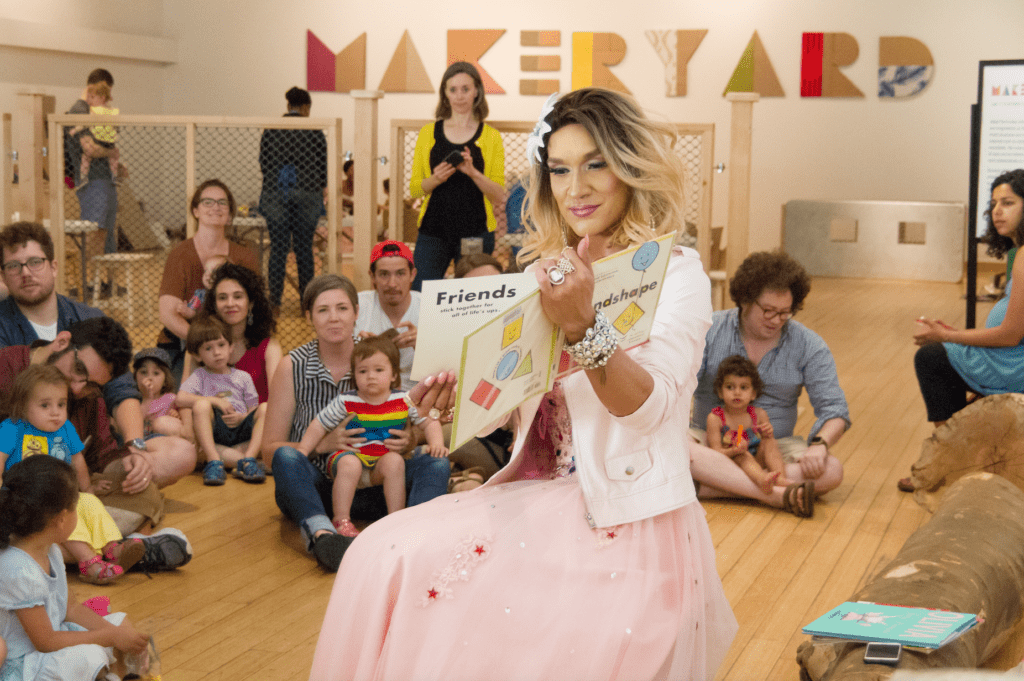It’s good news and bad news for State Representative Randy Fine. The good news? His wife will be able to continue her sexy sultry children fundraisers with children present, and even participating in the events. The bad news? Another federal judge has castrated yet another Fine bill targeting the LGBTQ community. The judge quotes Fine directly in his ruling.
“The state claims that this statute seeks to protect children generally from obscene live performances,” he wrote. “However, as explained (below), Florida already has statutes that provide such protection. Rather, this statute is specifically designed to suppress the speech of drag queen performers. In the words of the bill’s sponsor in the House, State Representative Randy Fine: ‘…HB 1423… will protect our children by ending the gateway propaganda to this evil — ‘Drag Queen Story Time.’ ‘”

Fine’s “Protection of Children Bill,” bans anyone from allowing a child to attend a “live adult performance.” Punishment for violating the law is a first-degree misdemeanor, and businesses involved can be fined or lose their operating and/or liquor licenses. The legislation was amended at the last minute to also hold local elected officials criminally liable for approving permits for such events. Fine specifically targeted Melbourne Mayor Paul Alfrey with the amendment, then posted about it on his Facebook page calling Alfrey a “trans apologist.” Alfrey made some of the same arguments that the judge did in defending his position of not banning Pride events.
The lawsuit against the bill was filed by Orlando’s Hamburger Mary’s Bar and Grille, which since 2008, has hosted “family friendly” drag show and comedy performances. They argued that the law violated the First Amendment and caused them financial harm for having to cancel their events.
The bill was so vague, likely intentionally, that Hamburger Mary’s argued that is is “not sufficiently narrowly tailored to achieve a compelling government interest and that it is constitutionally vague and overbroad.” District Judge Presnell agreed. He also went on to say that the bill likely violated the recently passed “Parent’s Bill of Rights,” a bill also pushed by Fine. Democrats during debate made the same argument, which Fine and others brushed off.
“Similarly indicative of the Florida Legislature’s failure to narrowly tailor (the “Protection of Children” bill) is its inevitable clash with the Florida ‘Parents’ Bill of Rights’ and other laws … In pertinent part, (the ‘Parents’ Bill of Rights’ law) states that: ‘All parental rights are reserved to the parent of a minor child in this state…including…[t]he right to direct the upbringing and the moral or religious training of his or her minor child.'”
The judge went on to make a similar point we shared with opponents of the bill during debate. The bill would criminalize the act of taking a child to a “live adult performance,” it is still perfectly legal in Florida to take a child to a movie containing the same, or worse, content.
“This concern rings hollow, however, when accompanied by the knowledge that Florida state law, presently and independently of the instant statutory scheme, permits any minor to attend an R-rated film at a movie theater if accompanied by a parent or guardian,” Presnell wrote. “Such R-Rated films routinely convey content at least as objectionable as that covered by (the “Protection of Children” law).”
He also highlighted a section of the law that prohibits “lewd exposure of prosthetic or imitation genitals or breasts,” saying established caselaw does not support classifying “a fully clothed drag queen with cleavage-displaying prosthetic breasts reading an age-appropriate story to children” as obscene in the way that Florida’s law does.
The focus on artificial genitals or breasts also raises the possibility of inadvertently criminalizing other protected speech, Presnell added.
“Moreover, the Act’s focus on ‘prosthetic or imitation genitals or breasts’ raises a host of other concerns not simply answered — what are the implications for cancer survivors with prosthetic genitals or breasts?” he wrote. “It is this vague language — dangerously susceptible to standardless, overbroad enforcement which could sweep up substantial protected speech which distinguishes (the “Protection of Children” law) and renders Plaintiff’s claim likely to succeed on the merits.”
The bill is effectively blocked which prohibits the state from “instituting, maintaining, or prosecuting and enforcement proceedings under the (“Protection of Children”) Act until further order of the Court following a trial on the merits of this case.”
Florida tax payers are now on the hook for millions of dollars in attorney’s fees defending Fine’s bills.











